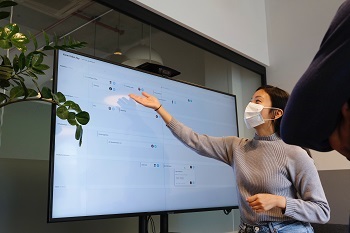For School Professionals – Three Steps to Master Back-to-school COVID-19 Anxiety
For School Professionals – Three Steps to Master Back-to-school COVID-19 Anxiety

Let’s first acknowledge that going back-to-school is harder this year. As you write lesson plans, you’re trying to figure out how to execute them online. As you set up your classroom, you’re dodging the new partitions that have been installed. As you meet with your staff about the upcoming year, you struggle to regain a connection with them over Zoom or WebEx. You’re sitting through professional development that’s more about proper hygiene and about using personal protective equipment than curriculum development and teaching strategies. And you’re trying to figure out how you’re going to do your job with COVID-19 creeping around everywhere.
Let’s also admit that—no matter how tough you are or pretend to be—you are feeling some fear, sadness, and anger. You feel pain and disappointment. These feelings are relentless. The more you try to escape them, the tighter their grasp gets. The more you try to ignore them, the more annoying they become.
Now let’s accept that our current situation is unlikely to change anytime soon. COVID-19 and the disruptions it’s brought with it are here to stay. We could call it “a new normal,” but, let’s face it, nothing about our current situation is “normal.” You will wear a mask. You will stay six feet away from people you used to hug. You will learn to teach online. You will hear complaints and well-intentioned suggestions from colleagues and families. You will feel fear, pain, anger, and sadness. The kids you teach, the people you work with, and your family will feel the same.
You wish it were different. You think things like, “I can’t stand this!” and beg or pray for it to end. But it doesn’t and will not stop.
You’re still here, though. You can stand it. What now?
COVID-19 and those who depend on it for ratings or votes are trying to fool you into thinking this situation is unprecedented. You already know how to do your job even under horrendous circumstances. You know how to manage crisis and adjust to new expectations. You bring order to chaotic classrooms or meetings. You comfort kids and colleagues when they feel pain. You help kids focus when they are distracted. You listen calmly to everyone telling you how to do your job. By coming ready to work even on your hardest days, you teach your kids and colleagues a new mantra to get them through anything, even COVID-19:
“What’s going on is painful. There’s nothing I can do about that. Instead, I’m going to use my energy to do what I know is important.”
Trust yourself. This is what you’ve done your whole career. Keep it up.
This advice will not work for everyone. Try it a couple times before moving on. If you continue to have difficulty with anxiety, sadness, or other painful emotions, reach out for help. Family, colleagues, and employee assistance programs are good sources, as is the Anxiety and Depression Association of America.












